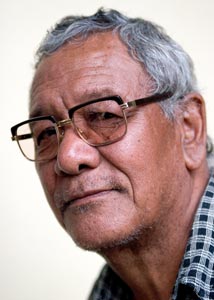Name: Tashi
(Alias: Yes)
Gender: Male
Interview Age: 69
Date of Birth: 1938
Birthplace: Nenyi - Gyangtse District, Utsang, Tibet
Year Left Tibet: 1959
Profession: Monk
Monk/Nun: Previously
Political Prisoner: No

Interview No.: 11
Date: 2007-06-29
Language: Tibetan
Location: Lugsung Samdupling Settlement, Bylakuppe, Karnataka, India
Categories: Resistance and Revolution
Keywords: childhood memories, Chinese -- oppression under, Chinese army -- invasion by , Chushi Gangdrug guerrillas, escape experiences, festivals, forced labor, monastic life, refugee in India -- life as, Utsang
Summary:
At the age of nine, Tashi became a monk and remained at the monastery for ten years. During this time many people from the region of Kham moved to Tashi's region of Gyangtse in order to escape Chinese atrocities and ongoing battles. Later, the Chinese also overtook Shigatse and Gyangtse. Food shortages became a problem after the Chinese invasion and many children were taken away from their families, never to return.
When the armed conflict started in 1958, Tashi and a monk companion joined the Chushi Gangdrug Defend Tibet Volunteer Force in Tsethang, where the biggest Volunteer Force camp was based. Tashi describes the Tibetan guerrilla force, its formation and equipment. He also gives an account of how the Chushi Gangdrug guerrillas challenged the Chinese army with their limited manpower and inferior weapons.
Tashi and many other Chushi Gangdrug fighters fled to India under fire from the Chinese. Tashi describes early life in exile. He later joined the Indian Army where he served for 20 years.
Interview Team:
- Martin Newman (Interviewer)
- Lhakpa Tsering (Interpreter)
- Tsewang Dorjee (Videographer)

